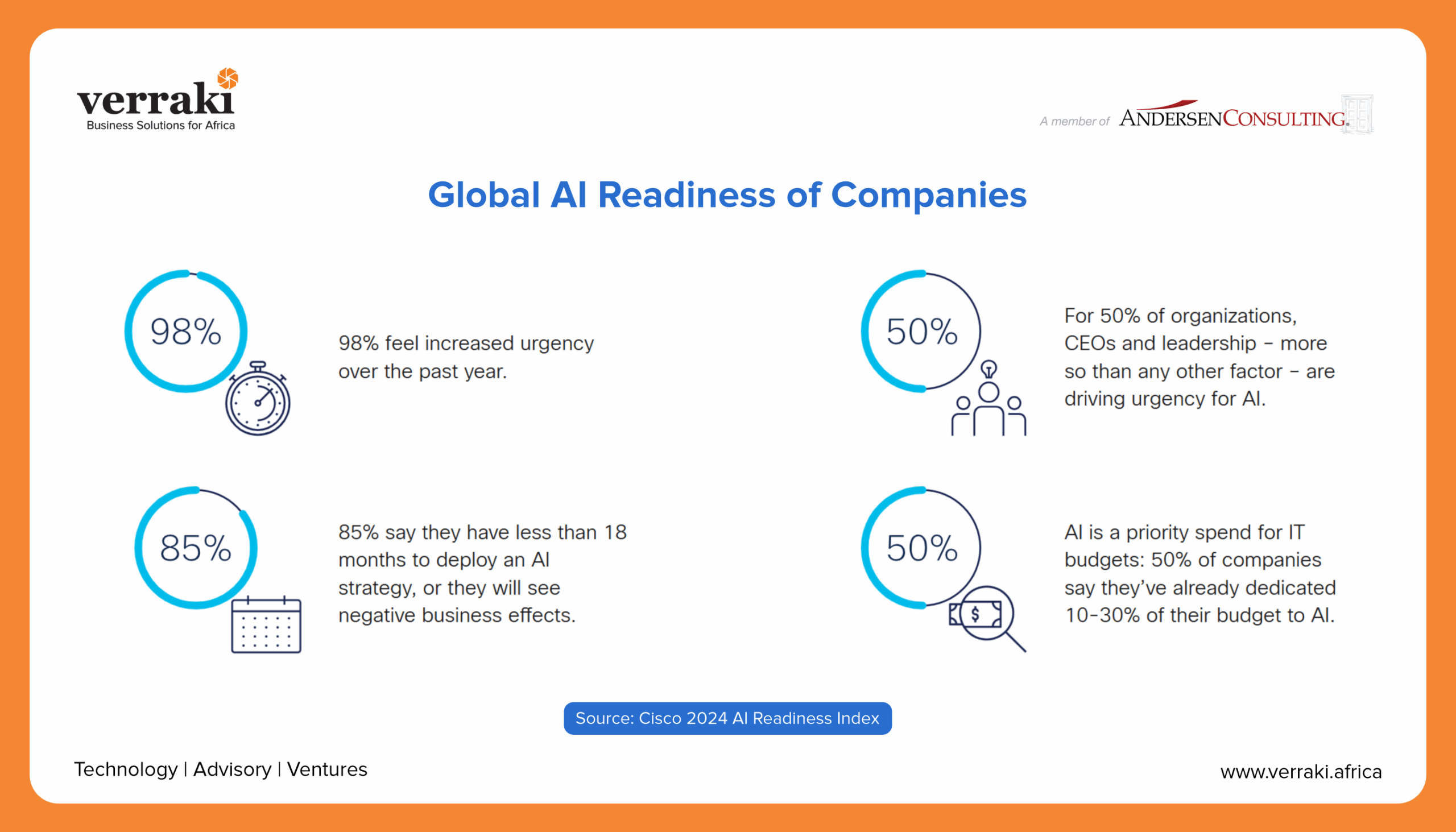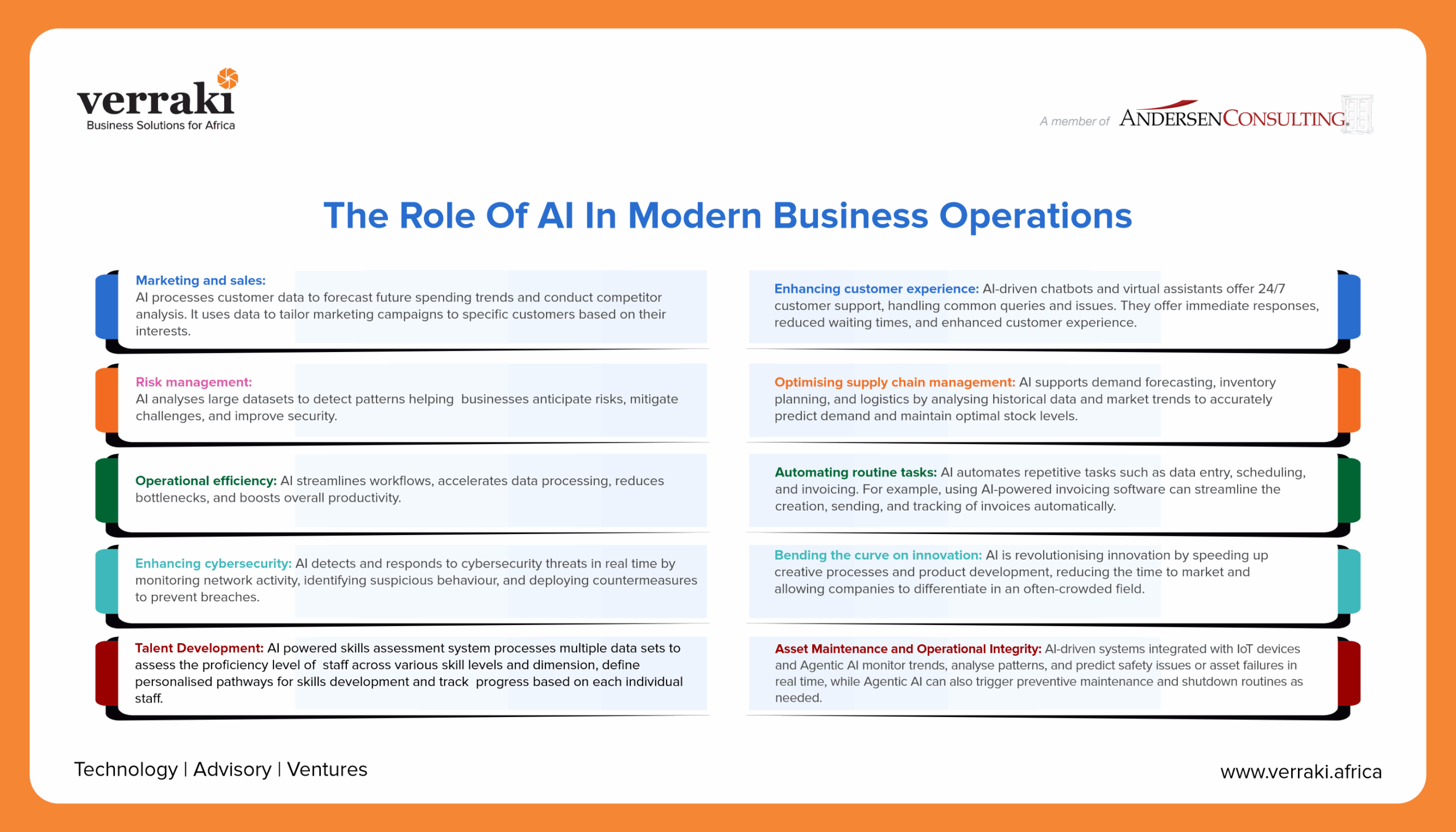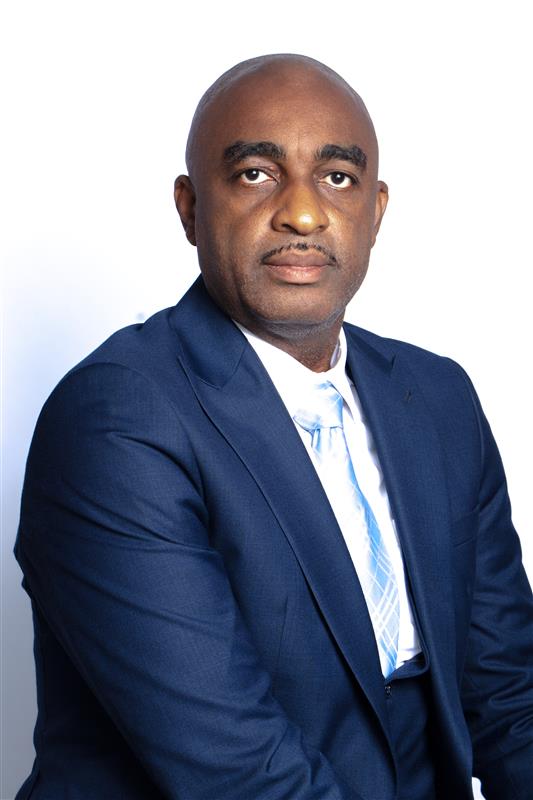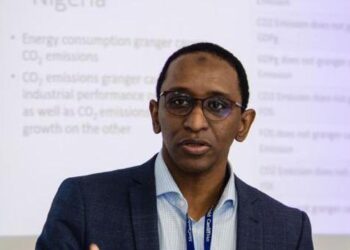- By Olatunde Olajide, Partner, Technology Advisory, Verraki Partners (A Member of Andersen Consulting)
Artificial Intelligence (AI) has evolved from buzzword to business backbone. Today’s most competitive organisations are no longer just product-driven or service-led, they are intelligence-powered.
Yet across Africa, AI adoption remains limited, often seen as an expensive luxury rather than a business necessity. That mindset must change.
AI is becoming foundational across industries: finance, healthcare, agriculture, logistics, retail, and even governance.
For Africa, it offers a real opportunity to accelerate economic inclusion, eliminate inefficiencies, and leapfrog developmental stages without the burden of traditional infrastructure.
AI: What It Is and Why It Matters
AI refers to machines mimicking human intelligence, recognising patterns, making decisions, and automating tasks. It powers tools like customer service bots, fraud detection systems, and inventory managers.
For African businesses, AI is already within reach. Tools can:
- Offer 24/7 customer service without increasing headcount.
- Translate across languages and take meeting notes automatically.
- Predict inventory needs and optimize logistics.
- Recommend traffic routes, news, and entertainment.
These are not futuristic concepts, they are live and accessible. The real question is: Are African businesses ready to work with AI?

Dispelling AI Myths
To scale adoption, we must challenge common misconceptions:
- “AI will eliminate jobs.”
AI automates tasks but creates new roles. Like the shift from typewriters to computers, it demands new skills. Those who adapt will thrive; those who resist risk obsolescence.
- “Only large firms can afford AI.”
Wrong. Every business generates and relies on data. Many AI tools today are low-cost or even free. Small businesses can use AI to automate tasks like invoicing or transaction screening.
- “My business doesn’t use data.”
All businesses rely on data: customer feedback, inventory, and sales performance. The issue isn’t data availability; it’s whether it’s being used effectively.
- “AI always gets it right.”
AI is only as good as the data it’s fed. Without quality inputs, AI results will be flawed. Human oversight remains essential.

The First Step: Literacy, Not Technology
An AI journey begins with understanding, not coding. Businesses must first build AI awareness across leadership and teams. Just as cybersecurity and compliance have become part of company culture, so must AI literacy.
Employees are more likely to embrace AI when they understand its value and limitations. Business leaders should:
- Offer practical education on what AI can and cannot do.
- Address fears about job loss through open dialogue.
- Share local case studies of successful implementation.
- Encourage experimentation with low-risk AI tools.
AI governance must also be clearly defined. This includes policies around data quality, ethical use, and accountability.
Data: The Fuel That Powers AI
AI needs clean, structured, and accessible data to deliver meaningful outcomes. Yet in many African businesses, data remains scattered or poorly managed.
To address data challenges, businesses should:
- Establish data governance frameworks.
- Assign data champions across departments.
- Conduct regular data quality audits.
- Leverage cloud-based tools for centralised, cost-effective access.
Without these foundations, even the most advanced AI systems will fall short.
Building AI Capability, Step by Step
African businesses should avoid the mistake of overreaching too early. A phased approach works best:
- Start simple – Automate customer emails, meeting notes, or invoice categorisation.
- Track impact – Monitor time saved, error reduction, and engagement levels.
- Scale gradually – Build complexity and capability over time.
This approach builds trust, reduces risk, and encourages continuous learning.
Insights from Verraki’s AI Readiness Framework show that while 87% of African leaders believe they’re ready for AI, only 66% expect to achieve maturity by 2027. There’s a clear gap between ambition and preparedness.
Tech, finance, and telecom sectors are leading in AI readiness. However, regulatory barriers remain a concern as over 55% of leaders cite policy challenges as a hurdle to adoption.
The framework calls for a holistic approach; strategic intent, strong data governance, executive sponsorship, and a robust digital foundation. Readiness goes beyond interest in emerging tech. It requires real investment in capabilities.

People, Not Platforms, Drive Transformation
AI success ultimately rests on people, not tools. Human talent determines whether AI creates value or becomes another failed initiative.
To build an AI-ready workforce, organisations must:
- Partner with training providers to expand technical knowledge.
- Create upskilling pathways with certifications.
- Hire young professionals fluent in data science and AI.
- Embed AI training into onboarding and leadership programs.
- Redesign operations to integrate AI tools across departments.
Governments and institutions must also align on a shared vision for AI development. The Federal Government’s AI Academy plan to train 100,000 Nigerians is a promising step, but broader, grassroots implementation is critical.
Collaboration Is the Differentiator
Verraki, as part of Andersen Global, leverages expertise from over 20,000 professionals in 500+ locations worldwide. This allows African businesses to access global best practices while maintaining local relevance.
Clients benefit from:
- Faster AI adoption with proven frameworks.
- Access to leading AI tools and platforms.
- Cross-sector global insights.
- Confidence to scale from pilot to enterprise-wide solutions.
Final Word: Readiness Over Hype
AI isn’t just about tools, it’s about mindset. The businesses that will win in Africa’s future won’t be the biggest or oldest: they’ll be the ones that learn fast, adapt quickly, and act boldly.
The future isn’t waiting. Are we ready to lead it?
To explore more insights and practical strategies, download Verraki’s AI Readiness Framework report at www.verraki.africa


















